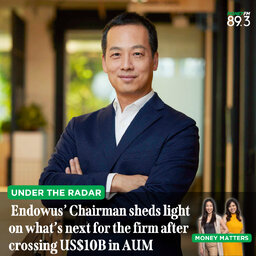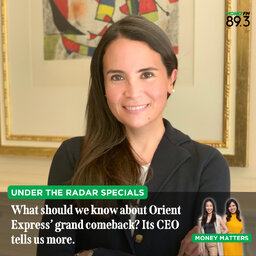Under the Radar: Overcoming language barriers with AI - German translation startup DeepL on future growth, backing by Mark Zuckerberg’s Family Office fund and expansion in Asia
Using artificial intelligence to overcome language barriers through human-like machine translation. That is what we are going to talk about today.
Founded in 2017, our guest DeepL is a global communications startup powered by Language AI. Language AI, for context, is a field of artificial intelligence that looks at getting computers to understand and communicate in the human language.
Now, back to DeepL, the German company works on human sounding translations and intelligent writing suggestions for enterprises across 32 global languages, and is said to be able to translate with pinpoint accuracy, accounting for industry-specific terminology and situational context.
Since its founding, DeepL has enabled over 100,000 businesses to transform communications, reach new markets and improve productivity.
The company is seen as a competitor to Alphabet’s Google Translate. It is also backed by a number of notable names including a fund from Mark Zuckerberg’s family office and Index Ventures.
Its valuation? A whopping US$2 billion as of May this year.
Aside from the big numbers, DeepL is also seeing a number of exciting developments of late. The company had in late July launched traditional Chinese as a language option as it looks to double down on its presence in Asia.
But why did DeepL choose to offer this rather niche language used mostly in Hong Kong and Taiwan, and how far will this help it compete against major Chinese technology giants such as Baidu and Tencent which provide translation tools in simplified Chinese?
Meanwhile, the firm had also in the same month launched a language model that is said to outperform GPT-4, Google and Microsoft for translation quality. But how will this set the stage for DeepL as it pursues future growth?
On Under the Radar, The Evening Runway’s finance presenter Chua Tian Tian posed these questions to Jarek Kutylowski, CEO and Founder, DeepL.
In 3 playlist(s)
Under The Radar
We speak with businesses, industry leaders, venture capitalists and startups on their assessment of …Social links
Follow podcast
Recent clips

Under the Radar: Endowus’ Chairman sheds light on what’s next for the firm after crossing US$10B in AUM
29:19

Under the Radar: (SPECIALS) How far has Micro-Mechanics’ move to decentralise production help it navigate global trade tensions, and what are the opportunities in the global semiconductor industry? Its CEO spills the beans.
25:20

Under the Radar: (SPECIALS) What should we know about Orient Express’ grand comeback? CEO of Orient Express and Group Strategy Officer of its parent Accor tells us more.
35:10
 Under The Radar
Under The Radar

